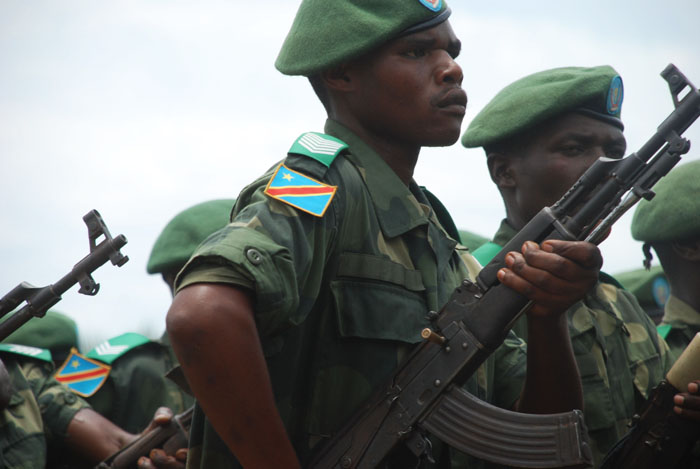
Eight years after the official end to the war in Congo, violence endures in the eastern portion of the country as the region remains overrun with rebel groups leaving civilians to bear the brunt of weak civilian protection measures. A horrific example of this is the latest round of attacks on civilians by the FDLR rebel group took place on January 2 and 3 in a remote area of eastern Congo’s South Kivu province. A Congolese army spokesman recently revised the death toll, bringing the number killed to 45 and making these attacks some of the most devastating in months. The majority of the dead are reportedly women and children.
The Democratic Forces for the Liberation of Rwanda, known by its French acronym FDLR, is one of the largest and most dangerous rebel groups in Congo’s volatile eastern region. The FDLR, which is made up predominantly of Hutus, claims it is trying to overthrow the government in Rwanda, however, the rebels spend much of their time committing atrocities, including mass rapes, looting natural resources, and killing civilians in eastern Congo.
Without a professionalized and reliable military or any form of civilian police protection against rebel attacks, civilians have increasingly been left to their own devices. The three villages in which the attacks took place—Luyuyu, Ngolombe, and Kishenya—in the Shabunda region of South Kivu were purportedly in retaliation for the villagers aligning themselves with a group of youth vigilantes associated with local Mayi Mayi groups, recently organized to fight the FDLR. In addition, some of these local Mayi Mayi groups have been allegedly receiving support from ex-CNDP forces, now within the Congolese army. Sources on the ground reported to Radio Okapi that the FDLR said they would “shoot at everything that moves” in its quest to remain dominant in the Shabunda area.
The attacks by the FDLR have been particularly brutal; the local village leader of Kishenya was decapitated and at least one of the victims was a pregnant woman, whose baby was cut from her stomach. Enough field researchers reported on insecurity and FDLR violence committed in the summer of 2011. However, the high number of fatalities and the brutality of this most recent attack makes it stand out even in the perennially volatile region.
The civilians’ suffering did not end with the attacks. Because of the remoteness of the area and lack of infrastructure many of the most critically injured civilians remained without medical care for days after the attack. On January 5 MONUSCO airlifted 13 of the most severely injured victims to the main hospital in the city of Bukavu. Three days later, the mission evacuated another six severely wounded civilians. Seven of the 19 evacuees are children.
Army spokesman Colonel Sylvain Ekenge noted that though these attacks were the worst in many months and that the death toll could still rise. In an attempt to prevent further violence, the Congolese army has been deployed to the area. Colonel Ekenge underscored the severity of the situation, saying, “It’s very, very serious, to the point that the army is re-enforcing the area.” In addition, MONUSCO has begun aerial monitoring and standing patrols in Lubimbe-II, Katshungu, and Kinglube villages in an effort to increase its presence in the affected areas, and is also coordinating with the national army.
This tragic loss of life underscores the need to address the issues of dismantling rebel groups and reforming the broader security sector in the region. It also underscores the complexity of the ongoing conflict in the East and inter-relatedness of the issues that drive these actors. Protection of civilians cannot happen without security sector reform; security sector reform cannot happen without justice reform; justice reform cannot happen without political reform; and none of these reforms can take hold in the East until the economic drivers of corruption and conflict are mitigated.
Ending future attacks is contingent upon a comprehensive approach to dismantling the remaining rebel groups, particularly the FDLR, the promotion of reliable civilian protection measures, and the meaningful reform of the security sector, including a focus on professionalizing the national Congolese army.
Aaron Hall contributed to this post.
Photo: A soldier in the Congolese army (Enough / Laura Heaton)

